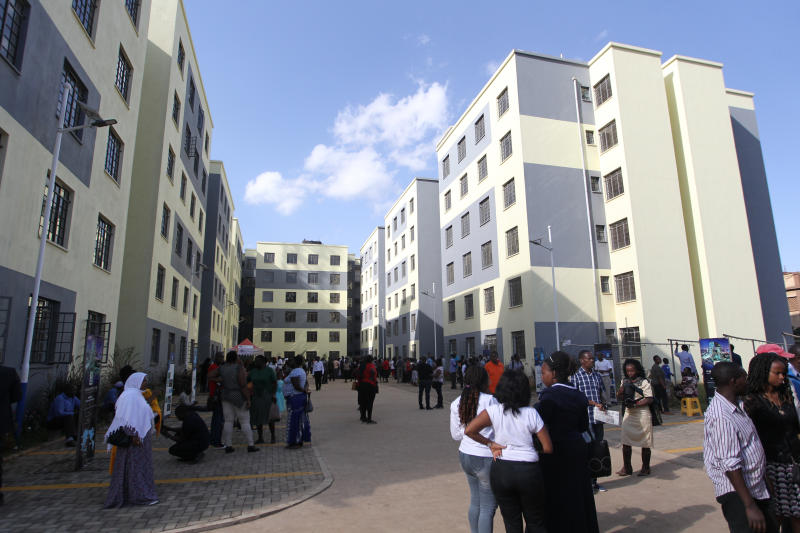×
The Standard e-Paper
Fearless, Trusted News

Kenyans qeueing to view the 228 completed units out of 1370 being constructed by government at Parkroad Nairobi under the affordable housing programme [Jonah Onyango, Standard]
President Uhuru Kenyatta’s regime promised to build at least half a million low-cost housing units between December 2017 and June 2022.







